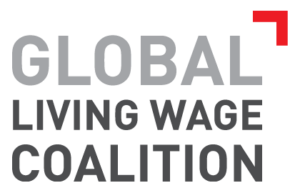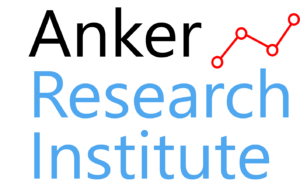Bananas in Costa Rica and Belize
The information contained in this case study has been supplied by Rainforest Alliance
Project Name
Next Steps in Sustainability-Measuring Impact and Testing Living Wage
Project Summary
Bananas as a commodity have a tumultuous history, particularly when it comes to labour practices and environmental degradation. While there have been many improvements over the last few decades, trade unions and NGOs continue to report concerns, including that low wages on plantations are insufficient for workers and their families to achieve a decent standard of living. While the wage situation is not unique to the banana sector, nor to Costa Rica and Belize, project partners nonetheless recognize the importance of decent wages to the health of communities and banana supply chains. For this reason, Fyffes, IDH The Sustainable Trade Initiative, other private entities, and the Rainforest Alliance have come together to finance and support the living wage estimates for Costa Rica and Belize, understand the gaps between living wages and current wages, and work with participating farms to develop monitoring tools and pilot strategies and plans for improving worker compensation.
Together with the Global Living Wage Coalition, and with critical input from banana sector representatives, including CORBANA, plantations, and worker organisations, we are working to finalize two living wage benchmarks – one each for Costa Rica and Belize. The benchmarks will cover regions of each country respectively where the majority of banana production is found. It is our intention that these benchmarks will serve as useful tools for workers and plantation managers/owners alike, and facilitate dialog on wages and shared value in the banana sector and beyond. The validation event for the Costa Rica benchmark was held in September 2017 and the final version of the study will be released by summer of 2018. The Belize living wage benchmark study is currently underway.
Eight pilot farms – four in each country – have volunteered to work with the project partners to better understand how their wages compare to living wage benchmarks, and together address wage gaps if and where they exist. Discussions between farms and project partners have already gone a long way toward helping all sides understand the complexity of compensation models, and helping stakeholders develop better tools for facilitating dialog on shared value. These farms are also providing critical feedback to the Rainforest Alliance ,which will help with learning and adaptive management on living wage criteria, training, and guidance within its certification system, landscape-level programmes, and advocacy work. The Rainforest Alliance Sustainable Agriculture Standard has included living wage in its sustainability standard since 2017.
Project Partners
The project, which initiated in 2016 with co-funding and support from IDH, Fyffes, and other private entities, is being implemented by the Rainforest Alliance – a leading member of the Global Living Wage Coalition (GLWC). The GLWC is also a key project partner and is carrying out the living wage estimates for both countries. Other important content contributors and partners include the World Banana Forum, banana plantations, workers, unions, and industry representatives.
Project Goal and Objectives
The overall goal of this project is to improve conditions for workers through supply-chain efforts in Costa Rica and Belize, while also contributing to dialog and progress on living wages and shared value globally.
This project is founded on the partners’ dedication to improved, more sustainable farming practices and the quantification of a decent standard of living for workers through the living wage benchmark. It builds on and works with ongoing global initiatives as well as efforts by individual donors and governments. It contributes to global dialog and learning on living wage, as well as practical application of living wages across companies and sectors in Costa Rica and Belize. As standard systems adopt or increase focus on living wages, many different sectors are interested in understanding what this looks like for their key geographic areas. The activities outlined below will provide much needed insight.
The lessons learned from this project are intended to benefit the banana sector as well as other sectors in Belize, Costa Rica, and elsewhere. For example, results will be shared within the World Banana Forum to help identify solutions to overcome structural limitations in banana value chains, such as the low prices of bananas and potential gains from more efficient use of labour. In addition, the Rainforest Alliance Sustainable Agriculture Standard has included living wage criteria for just under one year at the time of this post, and as such now is the right moment to gain practical experience and harness learning from application of living wage benchmarks.
This project has several objectives:
- Assess the environmental, socio-economic, and sustainability impacts of Rainforest Alliance certification, including on standards of living for workers;
- Estimate costs of living and living wages for families covered by the geographic scope of the living wage benchmark studies;
- Gain practical experience in and share learning about the application of objective living wage measures and criteria;
- Raise awareness of and facilitate dialog across stakeholder groups on living wages and shared value within countries, supply chains, and the banana sector; and
- Improve the standards of living for workers on banana plantations.
Project Progress/Results
This project is currently underway with the following activities in progress:
- The project kick-off workshop and living wage estimate validation event for the Costa Rica benchmark was held in September 2017.
- A baseline assessment of social and environmental practices (including wages) on Rainforest Alliance CertifiedTM banana plantations was completed in May 2018.
- Working sessions on living wages were held with two Rainforest Alliance CertifiedTM plantations in Costa Rica in April 2018. The meetings revealed that on these plantations, more than 50% of workers, across several different job categories, likely earn a living wage or higher, with remaining workers experiencing a gap of 10-12%. While these two are leading, socially-minded farms and therefore do not necessarily represent the majority, they provided useful insight into the opportunities and limitations for banana plantations to independently improve worker compensation. These lessons are extremely useful to further dialog with the wider banana sector on sustainability and shared value. The meetings also helped the Rainforest Alliance to further design templates for wage monitoring that can also support farm self-assessment and implementation initiatives.
- The Belize kick-off workshop was held in May 2018.
- The living wage benchmark study and, separately, Belize baseline study, are currently underway.
- Sharing of lessons learned is ongoing, including within the World Banana Forum and the IDH Sustainable Initiative Fruit And Vegetables (SIFAV)
Additional results expected before the end of 2019 include:
- The final version of the Costa Rica living wage benchmark study will be released by summer of 2018.
- Working sessions with two additional banana plantations in Costa Rica will be held in summer of 2018.
- The validation event for the Belize living wage benchmark study is expected in summer of 2018.
- The final Belize living wage benchmark study is expected for release before the end of 2018.
- Presentation and discussions with pineapple producers and supply chains expected in 2018.
- Working sessions with farms in Belize will begin by early 2019.
- Impact studies will be completed for Costa Rica and Belize by the end of 2019.





